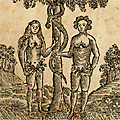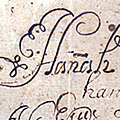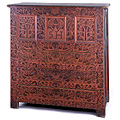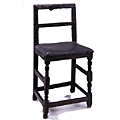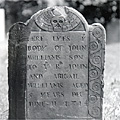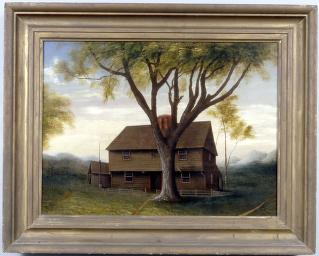
English contact in the 1500s with what was, to Europeans, the "New World" was quite limited. It consisted mainly of brief interchanges from coastal outposts. The main actors in these years were members and employees of English trading "Companies." These trading companies and their stock holders hoped to duplicate the spectacular success of Spain and Portugal in finding gold, silver, and other sources of wealth. Early colonists included soldiers, metal workers and silk weavers.
When attempts to duplicate the Spanish model of colonization and exploitation failed, English involvement in North America entered a new phase. For the first time, groups of families began to colonize the northeastern coast of North America. Although trading companies also financed these ventures, these settlements differed in important ways from earlier expeditions. The difference was especially apparent in the region that became New England. Instead of isolated outposts populated mainly by soldiers and adventurers, these latest arrivals included farmers and craftsmen. Most importantly, they came with their wives and children. These colonists brought with them the customs, beliefs and attitudes that together made up the fabric of everyday life. These included religious beliefs, ideas about how to raise up and educate their children, the roles of men and women, and assumptions regarding social and economic status.
"Ensign John Sheldon House," 1848, by George Washington Mark (1795-1879)
See the Digital Collection for further information.
|






